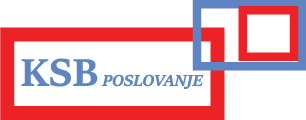 Constant changes in regulations keep entrepreneurs awake, and accountants learn new material every year from scratch. At the end of the year, we are usually greeted by changes in regulations, new contribution bases, a new amount of the minimum wage, and the like.
Constant changes in regulations keep entrepreneurs awake, and accountants learn new material every year from scratch. At the end of the year, we are usually greeted by changes in regulations, new contribution bases, a new amount of the minimum wage, and the like.
As of January 1, 2018. we have a number of changes. In this article, we will look at some of the more important changes in 2018. applicable to a large number of Croatian entrepreneurs.
Changes related to the Law on Income Tax
With first day of 2018. the definition of a dependent member changes. Grandchildren and great-grandchildren, grandparents, stepmothers and fathers-in-law since the beginning of 2018. they cease to be dependent family members. This year, citizens had the right to an additional tax deduction for each dependent family member, but the number of dependent family members for whom the personal allowance can be used has been narrowed – only to the immediate family.
A dependent member of the immediate family is considered to be a spouse (extra-marital and same-sex life partners), parents of the taxpayer, children up to their first employment, and adults for whom the taxpayer has been appointed guardian according to a special regulation, if they themselves earn less than HRK 15,000 per year. Anyone who has someone on their tax card who has been canceled as of January 1, 2018 by the new definition of a dependent member, should remove those “rescinded” dependents from their tax card by the end of the year so that employers can properly calculate their personal deduction.
With the beginning of 2018. provisions on the citizens’ tax card also come into force. The Tax Administration at the request of the employer and with the consent of the employee from 2018. has the possibility to deliver the tax card electronically ex officio.
From 2018 changes were also prescribed regarding daily allowances on official trips and their reduction in the case of a paid meal:
- if one meal is paid (lunch or dinner), the daily allowance is reduced by 30%,
- if two meals are paid (lunch and dinner), the daily allowance is reduced by 60%.
Breakfast included in the price of a night’s stay is not considered a provided meal, but situations have been added in which it is considered that a meal is provided and in which the daily allowance should be reduced, if a meal (lunch and/or dinner) is provided, such as:
- in the price of the registration fee for attending seminars, professional consultations and the like;
- in the price of a boat trip ticket;
- in the price of the airline passenger ticket, due to the interruption of the trip or; from the means of the employer’s representation.
Unfortunately, this means that if lunch is included in the price of the seminar, the daily allowance will be reduced, if you are given a meal on the plane, the daily allowance will be reduced, if you treat a business partner on an official trip and present it as a representation, since you ate yourself, it will be reduced you get a daily allowance.
The illogicality brought about by the previous amendment to the Income Tax Ordinance was corrected, namely that now the daily allowance in the case of air travel is calculated two hours before the scheduled departure time of the aircraft from the last airport in the Republic of Croatia until the time of arrival of the aircraft at the first airport in the Republic of Croatia .
Also clarifying the situation of daily allowance calculation in case of travel to several countries or if less than eight hours were spent abroad:
– any stay in a foreign country of less than 12 hours is calculated in the time spent in the next country where more than 12 hours were spent;
– if the person spent more than eight or more than 12 hours on the trip in total, and less than eight hours abroad, then the corresponding domestic daily allowance is paid, taking into account the total number of hours spent on the trip in the country and abroad.
There are also changes related to training and education outside the place of residence or habitual residence of the worker. The costs of transportation and accommodation of workers in the amount of actual expenses have been tax-free until now when sending workers to education or training. What is new is that in the case of seminars, counseling and training, per diems and/or fees for the use of a private car for official purposes are tax-free, provided that the training does not last longer than seven days.
A significant innovation is the recognition of accommodation and food costs for seasonal workers. Namely, for workers who are registered for a certain period of time as seasonal workers and who work outside their place of residence or usual place of residence at least 30 kilometers away, the employer will be able to pay the costs of accommodation and food tax-free, provided that the bills are for the employer and that he pays them through a business account .
Finally, along with water, cold and hot drinks (except drinks containing alcohol) become tax-free. After many years of requests from employers, the legislator finally allowed that workers can be provided with coffee, juices, and milk during working hours without tax burden, without it being considered a salary. So, now the workers can get thirsty at the expense of the employer, of course, if he wants to pay for it!
In addition, until now the employer could give an employee a gift in kind of up to HRK 400 per year tax-free, now that threshold has been raised to HRK 600. The employer can reward the employee with a gift worth up to HRK 600 without paying any additional taxes on that amount.
Profit tax law
From January 1, 2018, a change related to expenses based on the use of personal vehicles will come into force. Tax-deductible expenditure based on the use of personal vehicles is reduced from 70% to 50%.
So, from 01.01.2018. year, expenses based on the use of funds for personal transportation are recognized in the amount of 50% or 100% if salary or other income in kind is calculated.
When preparing the income tax return for 2017. the year that is submitted in 2018. tax relief for reinvested profits was abolished. Tax incentives for completed investments and investments in fixed assets are implemented only through the Investment Promotion Act (Official Gazette No. 102/15).
Value Added Tax Law
From 01.01.2018 the restrictions related to the deduction of input tax related to the use of personal vehicles are changed in such a way that:
- the taxpayer can deduct 50% of the input tax calculated on the purchase or rental of passenger cars and other means of personal transportation, including the purchase of all goods and services related to these goods, unless they exceed HRK 400,000.00 in purchase value.
The taxpayer will be able to deduct 50% of the input tax calculated on the purchase or rental of personal cars and other means of personal transportation, including the purchase of all goods and services related to these goods, which he could not do before. Deduction of input tax for purchases above the amount of HRK 400,000.00 per asset is not allowed.
For the purpose of monitoring the deduction of input tax in the amount of 50%, it is prescribed that data on this be recorded in the VAT Form in field VIII.1.1.2. (acquisition of personal cars and other means of personal transportation). In the data on the purchase of passenger cars and other means of personal transportation, only the data on the part of the value (tax base) from the base from which 50% of the input tax from Article 61 has been deducted is entered. paragraph 2. of the VAT Act, including the procurement of goods and related services. For example, if a taxpayer acquires a car worth HRK 120,000 plus HRK 30,000 VAT in field VIII.1.1.2. reports HRK 60,000.00 (part of the tax base based on which input tax was deducted).
For the creation of a tax liability in the construction industry, it is prescribed that no verification of the situation by the supervisory body is required, even in the case when the construction services for a domestic taxpayer are performed by a foreign taxpayer to which the transfer of tax liability prescribed in Article 75 applies. paragraph 2. of the VAT Act.
In 2018 In 2018, the threshold for mandatory entry into the VAT system was raised from the previous HRK 230,000 to HRK 300,000 for all small taxpayers, as well as craftsmen who pay income tax in a flat amount.
Law on Local Taxes
From 01.01.2018 the age criterion for determining and collecting tax on road motor vehicles is equalized and is determined and charged for all road motor vehicles up to 10 years old. Road vehicle tax is not paid on:
- vehicles of the Republic of Croatia and local and regional self-government units,
- vehicles of state administration bodies,
- vehicles of health institutions,
- fire department vehicles,
- vehicles of diplomatic and consular missions and foreign diplomatic personnel,
- special vehicles whose owners perform the registered activity of transporting the deceased and taxi service,
- vehicles adapted for the transport of persons with disabilities.
Vehicles older than 10 years are exempted from paying motor vehicle road tax.
The amount of the minimum wage
The amount of the minimum wage for 2018 has been prescribed in the amount of HRK 3,439.80.
Compulsory contributions in year 2018
New bases for the calculation of contributions are prescribed, shown in the additional table attached to this article. According to the new bases, we have a small increase in costs for year 2018.
And so, those would be the most important changes for year 2018. Do you know the answer? Can it be boring?
Naturally or unfortunately, there is always something more.
Until the next post,
